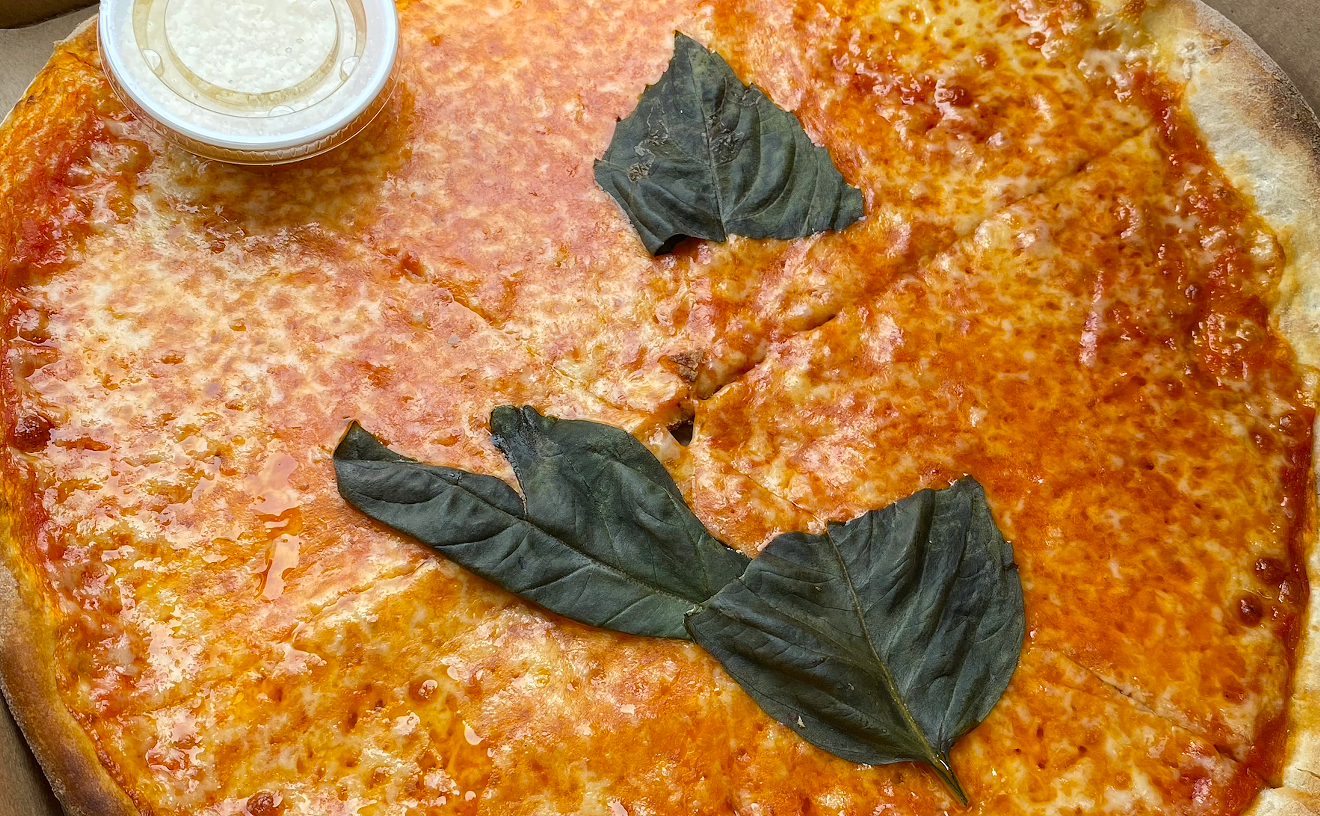The bad news is that this is going to be a very domestic summer. Wars and terror attacks are bound to keep us from flying abroad; gas prices are even making long road trips prohibitive. We may actually be reduced to spending our time off lazing around on our own beaches.
Which leads us to the good news: We have really awesome beaches. Not that I've been to one anytime in recent memory. But I hear from various sources that they're pretty darn nice, if you like relaxing on soft white sand and sunbathing under a clear blue sky and that sort of soothing, peaceful thing.
And to complement the tranquility, a trove of culinary-influenced works has recently come onto the market. Of them, which I will review grouped according to literary category (novels, poetry, etc.) from time to time, two memoirs -- Linda Greenlaw's The Lobster Chronicles and Tom Stone's The Summer of My Greek Tavérna -- are particularly suited for perusing in the pseudo-shade of the adjustable umbrella. Both have familiar island, beach, and ocean settings, though they're in different oceans of the world. Major themes include the two-degrees-of-separation of island living, the frustration of making a living in some fashion at the whims of the tide, and the glaring differences between islanders and tourists -- definitely subjects to which we in South Florida can easily relate. The best part, for some, is that the books include enough references to preparing and eating native fare, as well as recipes, that reading becomes not just lounge-chair traveling but beach-towel dining.
Nor do we have to live completely vicariously. Once our appetites are whetted, any number of South Florida restaurants can sate them with similar if not identical dishes to the ones in the books. After all, we do have our share of seafood restaurants and Greek tavérnas. So as far as half-assed vacations go, opa! This one might not be so lousy.
Not convinced? Consider the alternatives: picking up rotten mangoes, picking up after rotten tourists, or being in the same situation on, say, an island with a population of "47 full-time residents, half of whom I am related to in one way or another," as Greenlaw notes in The Lobster Chronicles (Hyperion). Subtitled Life on a Very Small Island, the memoir is a follow-up to Greenlaw's first, The Hungry Ocean, in which she details her life as a long-line swordfish fisherman. Chronicles begins with her reasons for deciding to leave that male-dominated business and have a go at the closely guarded lobster fishery, a birthright she is entitled to by virtue of being a native of Isle Au Haut. Pronounced I-la-HOE and referred to throughout the text only as "the Island," the tiny spit of land lies off the coast of Maine in Penobscot Bay, what Greenlaw and others call "the lobster capital of the world."
As far as slice-of-life writing goes, the narration can be both evocative and evasive: "The list of what we do have is shorter than that of what we do not have, and those of us who choose to live here do so because of the length of both lists." Fortunately, ambiguous statements are subsequently explained and indeed seem almost a formula for introducing chapters that cover topics ranging from political infighting over the restoration of the island's historic lighthouse to the training of volunteer EMTs to handle medical emergencies while patients are en route to the mainland via lobster boat.
At times, the detail is almost painful -- I'm not sure if I really needed more than two pages of explanation of how to "break a trap over the rail." At other times, the sketch feels like it could use a few more brush strokes. For instance, Greenlaw's lack of a husband and children, which she desires, is addressed, as is her mother's breast cancer, but these issues are never quite resolved. In part, though, this is because the time frame of the book really encompasses only one lobster season.
In the end, The Lobster Chronicles, which proffers a tempting recipe for buttery lobster pie toward its conclusion, is an enjoyable, quick, undemanding read about a very different way of life. And unlike other first-person accounts that deal with food-chain issues, such as Peter Lovenheim's Portrait of a Burger as a Young Calf, the thrust of the narrative is not to reveal the cruelty of an industry or guilt us into empathy toward our fellow, edible creatures but to share the insight of why some of us make the choices we do.
The theme of deliberate decision-making versus letting fate take its course is handled with aplomb in Stone's memoir The Summer of My Greek Tavérna (Simon and Schuster). Like Chronicles, the main setting is an island, and the period that is largely addressed is a single summer when Stone is 42, though flashbacks to the past decade are frequent.
An American who chose at age 33 to go to Greece for a few months to write his long-dreamt-of novel, Stone allowed self-determination to lapse as soon as he arrived in Athens and followed it up by a stay on Mykonos. "I decided that if I were to get any work done at all, I would have to find some place far away from the siren calls that await you along the beaten tourist track. I chose Patmos as the designated island by simply closing my eyes and dropping my finger on a map of the Aegean, fully confident that now that I was in Greece, I was in the hands of a benevolent Fate who would see to it that all would be well, no matter where my finger landed."
Fate not only led Stone to Patmos, where he completed his novel Armstrong and published it back home, making enough money for him to stay abroad (for a total of 22 years, as it would turn out). It also put him in the path of his wife-to-be, aspiring artist Danielle, along with the family they would almost immediately start, Sara and Matt, ages 6 and 2, respectively, in the book.
This point is where the story really begins: Now that they had a family, the Stones moved from Patmos to Crete, where Tom is teaching English, Danielle making souvenirs for tourist gift shops. When an offer from an old Patmian friend, Theológos, comes in unexpectedly -- "Listen! You want to rent my tavérna this summer?" -- Stone, with little hesitation and even less forethought, agrees, despite warnings from mutual acquaintances that Theológos is a swindler.
Stone is a likable-enough guy, with enough command of the Greek language, history, and geography to allow the reader to feel not only guided but let in on secrets about which only the Patmian natives would know (and subsequently closely guard). But it is all too easy to lose sympathy for him from the get-go -- literally the second page of the text -- when he writes about teaching instead of working on a new novel. "American that I was, I was still struggling, even at forty-two, to believe that downsizing my dreams and taking on a steady job again was a good thing."
In addition to alienating his fellow writers, including those of us who work more than one steady job while we raise families to attain even part of a dream (or retain a half-remembered one), Stone manages to put off veterans of the restaurant business. I don't know what he was expecting when he agreed to take over the running of the Beautiful Helen, one of only two tavérnas on the island, during tourist season -- except making din-din for a bucket of drachmas -- but it seems clear that he had never before toiled in the industry. As such a novice, he has little right to pen passages like, "For those of us in the restaurant business... you considered yourself lucky if you only had to work eighteen straight hours out of twenty-four... In a way, The Beautiful Helen now belonged more to the customers and their needs than it did to those of us who worked there. We were simply along for the ride, and it felt impossible, at this speed, to jump off. So every morning, no matter how tired you were or painful it was, you dragged yourself out of bed with seemingly no other choice but to stand up and force your racked body and foggy brain to grapple once again with this monster you had created."
Jeez. And let's not forget how little he mentions, sees, or appreciates his wife, who has given up her own career, if only temporarily, and is solely, completely responsible for the children. Of course, he acknowledges his neglect in the book. But his self-castigation reeks of salving his conscience: "Where were Danielle, Sara, and Matt during all of this? I hardly remember. They had become so marginal to the pressures I was facing that they seemed to have faded from existence, like figures in a photograph left too long in the sun, smiling and squinting at the camera, somewhat puzzled-looking, caught in a barely recalled summer moment. But there would be time for them later. After I had raked in my profits."
Arrogant naivete aside, Stone's inside account of running a Greek tavérna -- and I won't give away the ending, but Theológos does manage to fulfill his predicted role as villain -- is a delicious cultural comment. And the inclusion of recipes for classic Greek dishes such as tzatziki or meatballs avgolémono (egg-lemon sauce) are indeed welcome. Despite their origins, however, I plan to test their authenticity, if only because the next-to-last passage in the book, hidden in the "About the Author" section, either gives the lie or lends credence to nearly everything Stone writes in The Summer of My Greek Tavérna: "He and 'Danielle,' a successful painter in Greece, have recently concluded an extremely amicable divorce."










